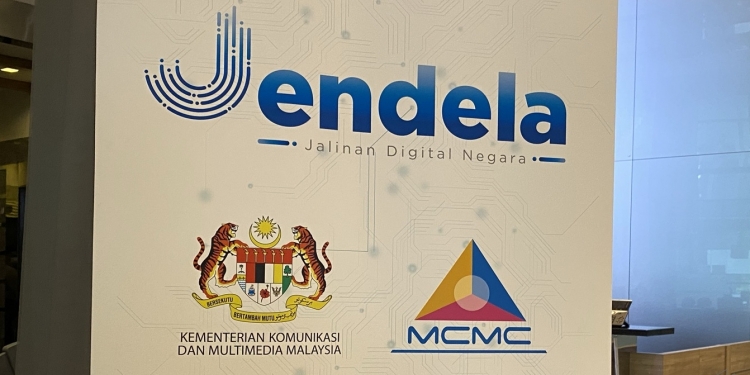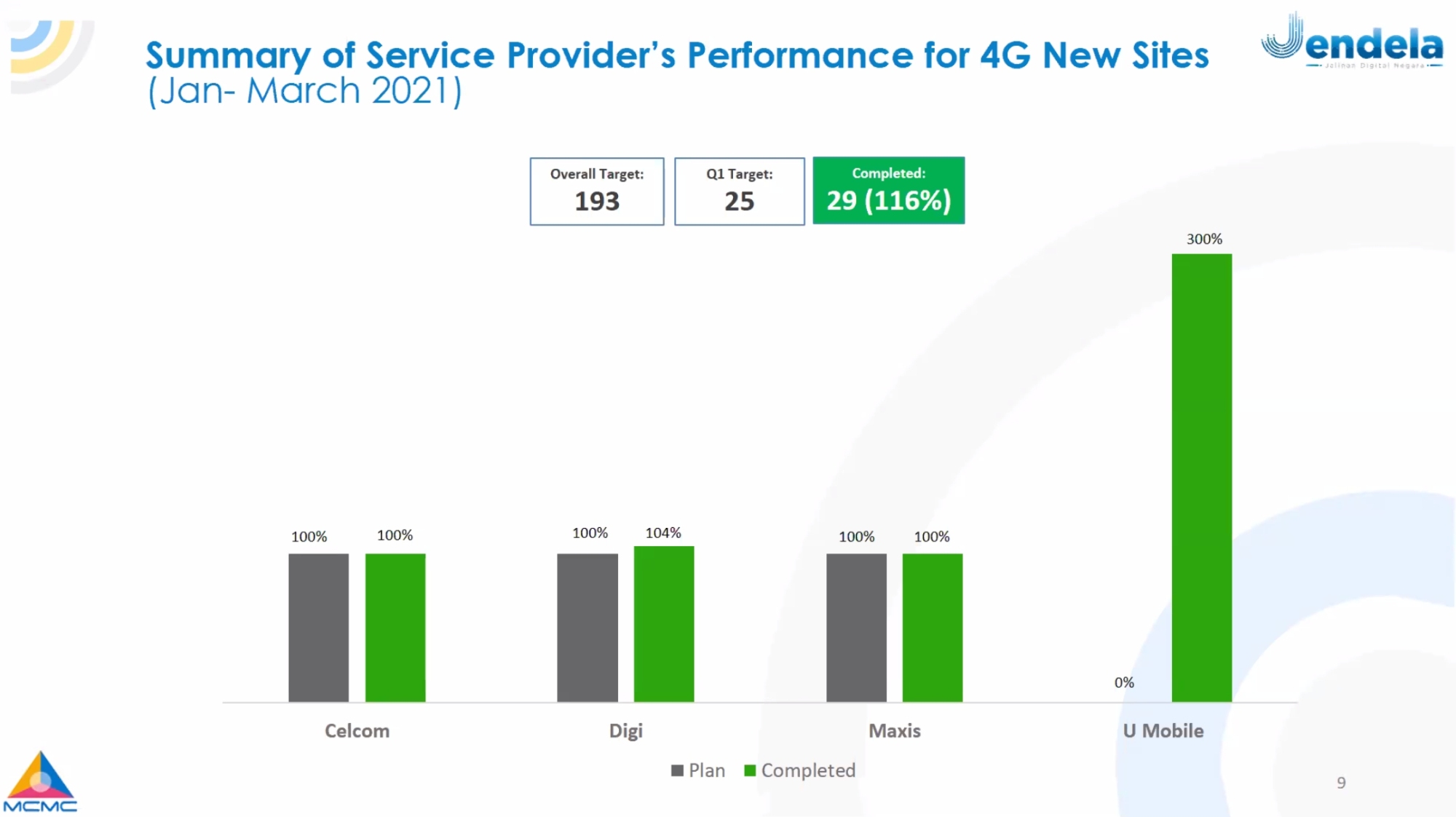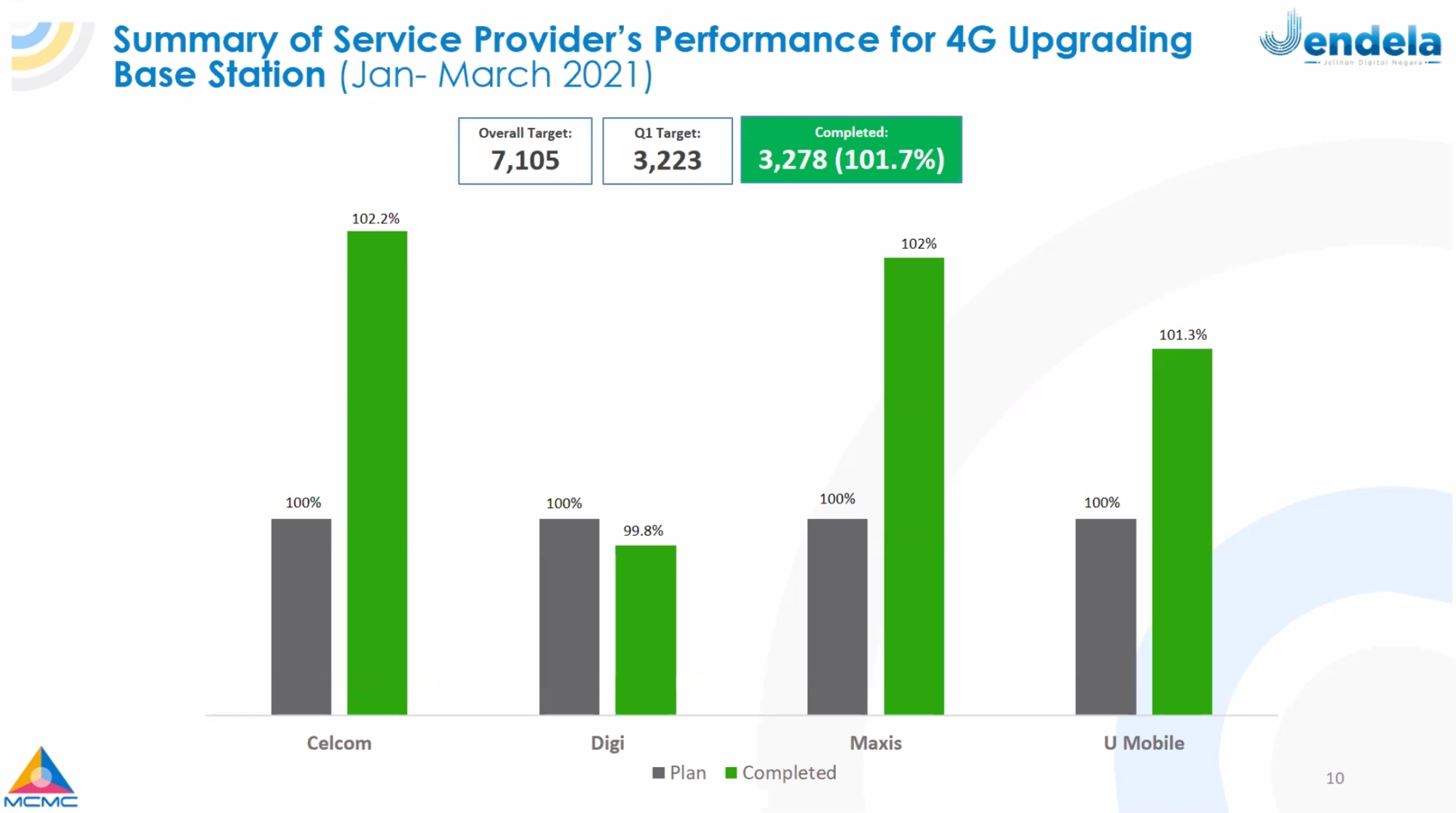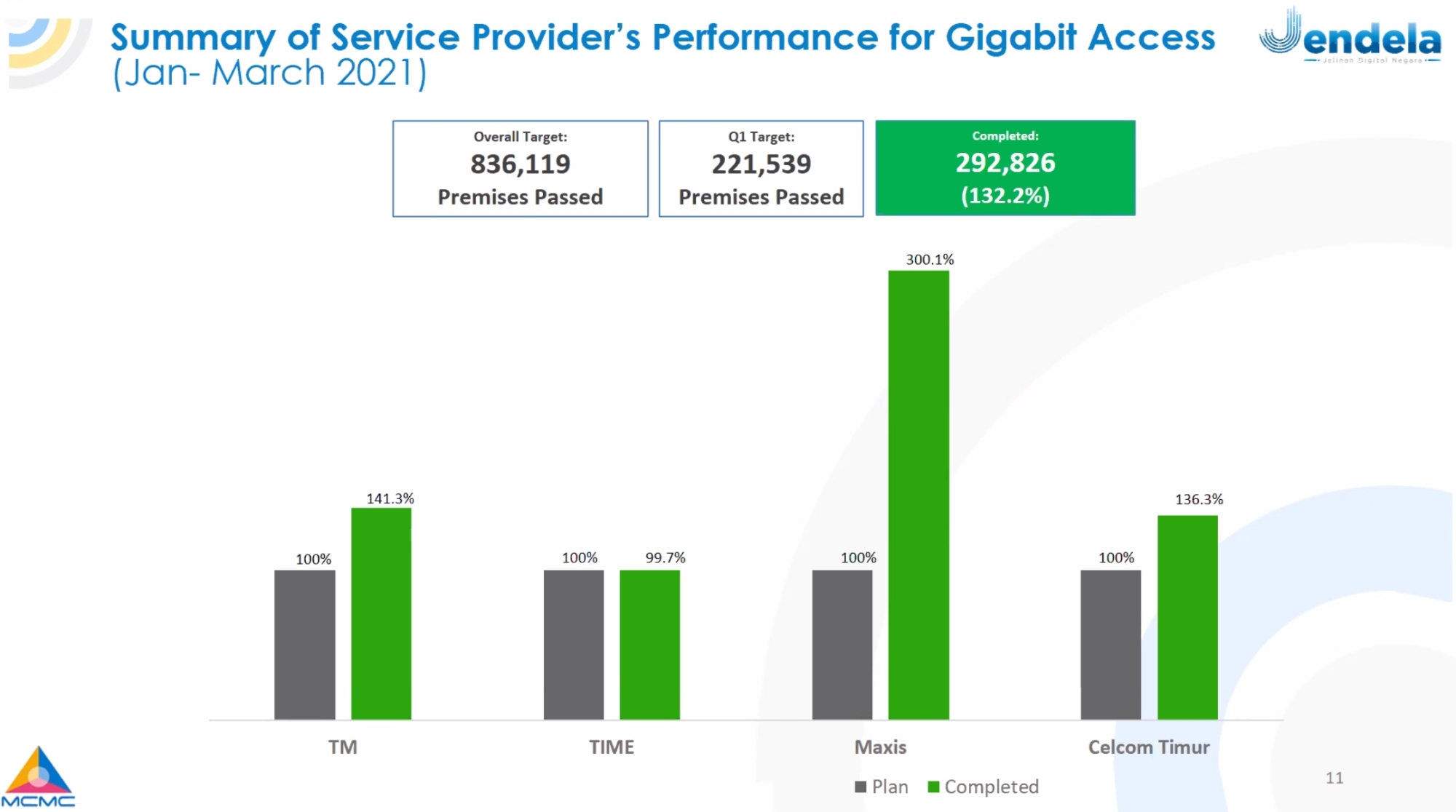Editor’s note: MCMC has clarified that JENDELA Phase 1 is still targetted for end-2022. The only area that’s expedited is the 5G rollout under Phase 2. We have updated the post to reflect the actual situation.
====
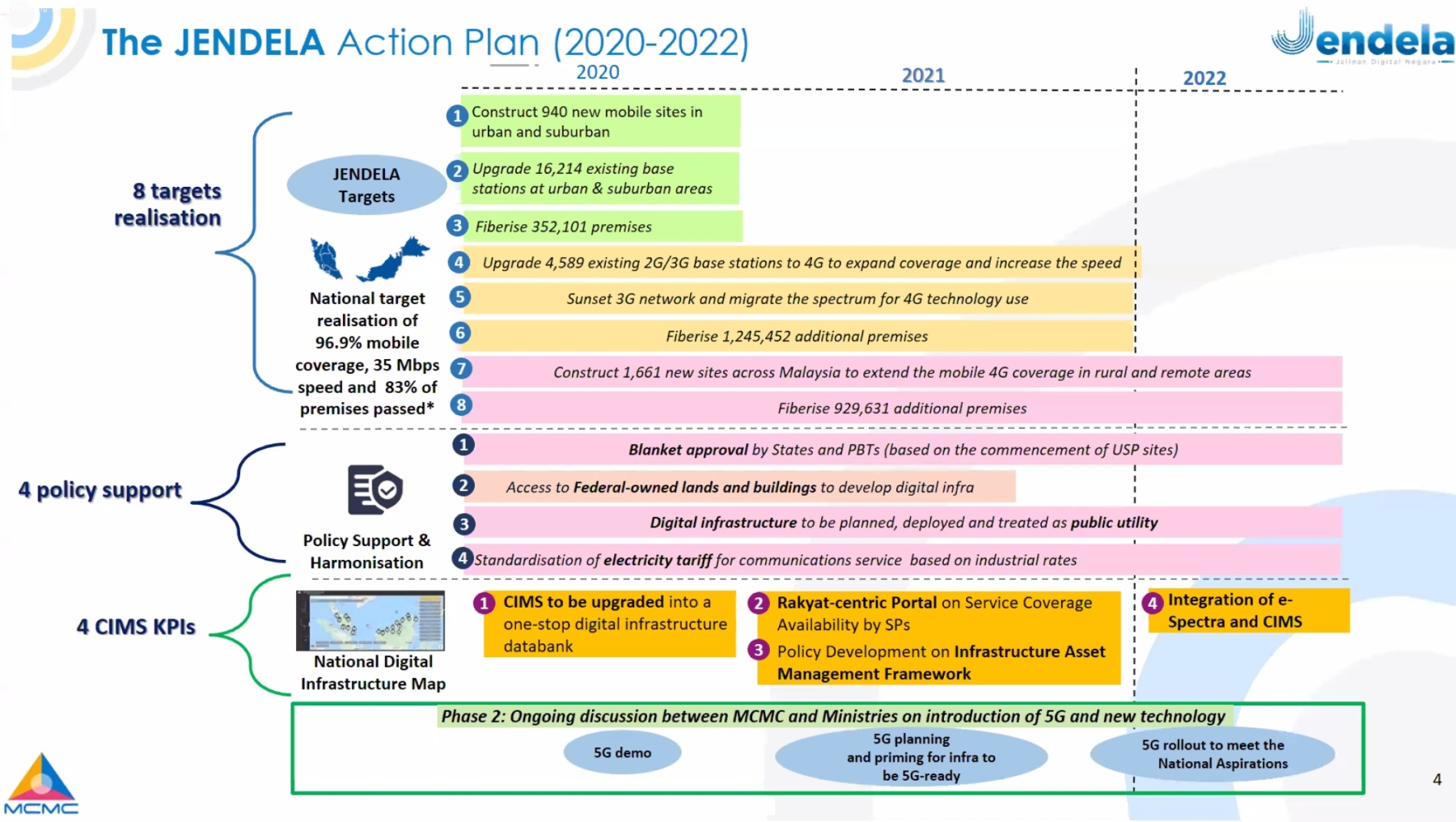
The Communications and Multimedia Minister, Saifuddin Abdullah, has announced yesterday that the JENDELA Phase 1 targets are on track and 5G deployment will be expedited due to the planned launch of 5G services in Q4 2021.
The Malaysian Communications and Multimedia Commission (MCMC) has revealed the JENDELA performance results for the last quarter today. It showed that the telcos have mostly exceeded its fixed and mobile broadband targets.
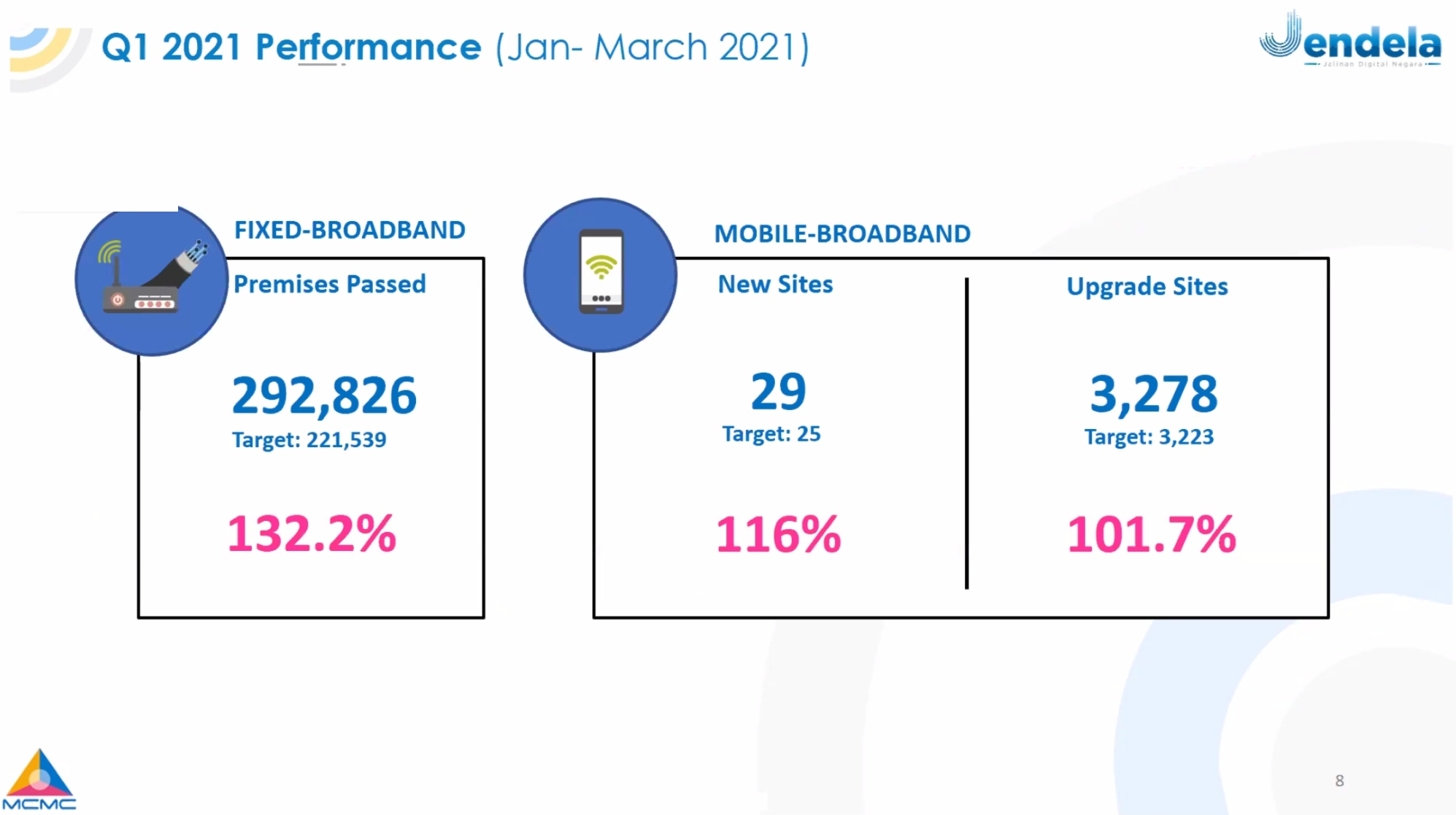
Between January to March 2021, a total of 292,826 new premises have gained access to gigabit fibre broadband which is 132.2% of target. Meanwhile, there are 29 new mobile sites which is 116% of target and a total of 3,278 sites being upgraded which is 101.7% of the target.
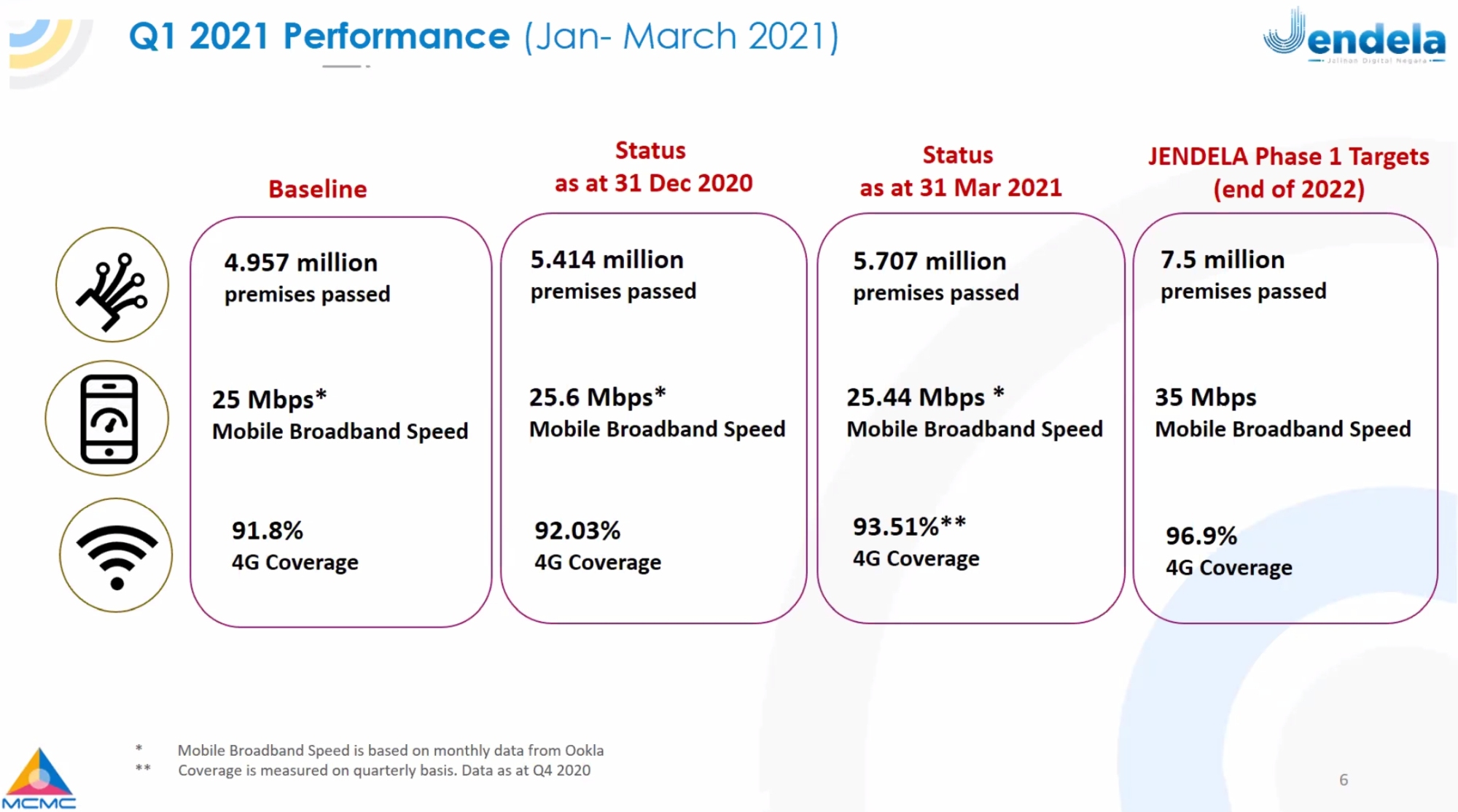
As of 31st March 2021, Malaysia has a total of 5.707 million premises with fibre and achieved 93.51% 4G population coverage. However, there’s hardly any improvement when it comes to average download speeds which JENDELA aims to bump to 35Mbps.
According to the report, the current average speed is 25.44Mbps, which is an improvement of just 1.76%. In fact, the average speeds in Q1 2021 had dropped slightly from 25.6Mbps recorded in December 2020. MCMC is using monthly data from Ookla to track the mobile broadband speeds.
Based on the published numbers, Malaysia’s 4G coverage is increasing at a rate of 1.48% per quarter. Plan submissions for JENDELA Phase 1 project were closed on 31st March 2021 and the implementation is said to begin in Q3 2021. The Phase 1 projects will see new towers being deployed at 1,661 locations in 106 clusters, mostly in rural areas of Malaysia.
Despite the expedited targets, MCMC Chairman Dr. Fadhlullah Suhaimi told us that he is confident that the 4G coverage targets will be met and exceeded on a monthly basis. As highlighted in the report, one of the immediate solutions to provide faster connectivity in rural areas is to deploy satellite broadband at 839 locations using the Universal Service Provision (USP) fund.
When it comes to fibre coverage, it is currently progressing at a rate of 300,000 premises per quarter. Early this year, TM has announced that it has exceeded its JENDELA targets and are committed deliver another 300,000 fiberised premises by the first half of this year. At the moment, there are 1.79 million premises remaining under Phase 1 and the deployment is still on track for its target by end of 2022.
The biggest area of improvement needed would be improving average download speeds. Despite the achievements made in upgrading existing towers, Malaysia is still far from hitting its target of delivering average mobile speeds of 35Mbps. As reported by Ookla’s Speedtest in December, Malaysia’s mobile speed lags behind 6 ASEAN countries including Vietnam, Laos and Myanmar.
3G to 4G migration on track
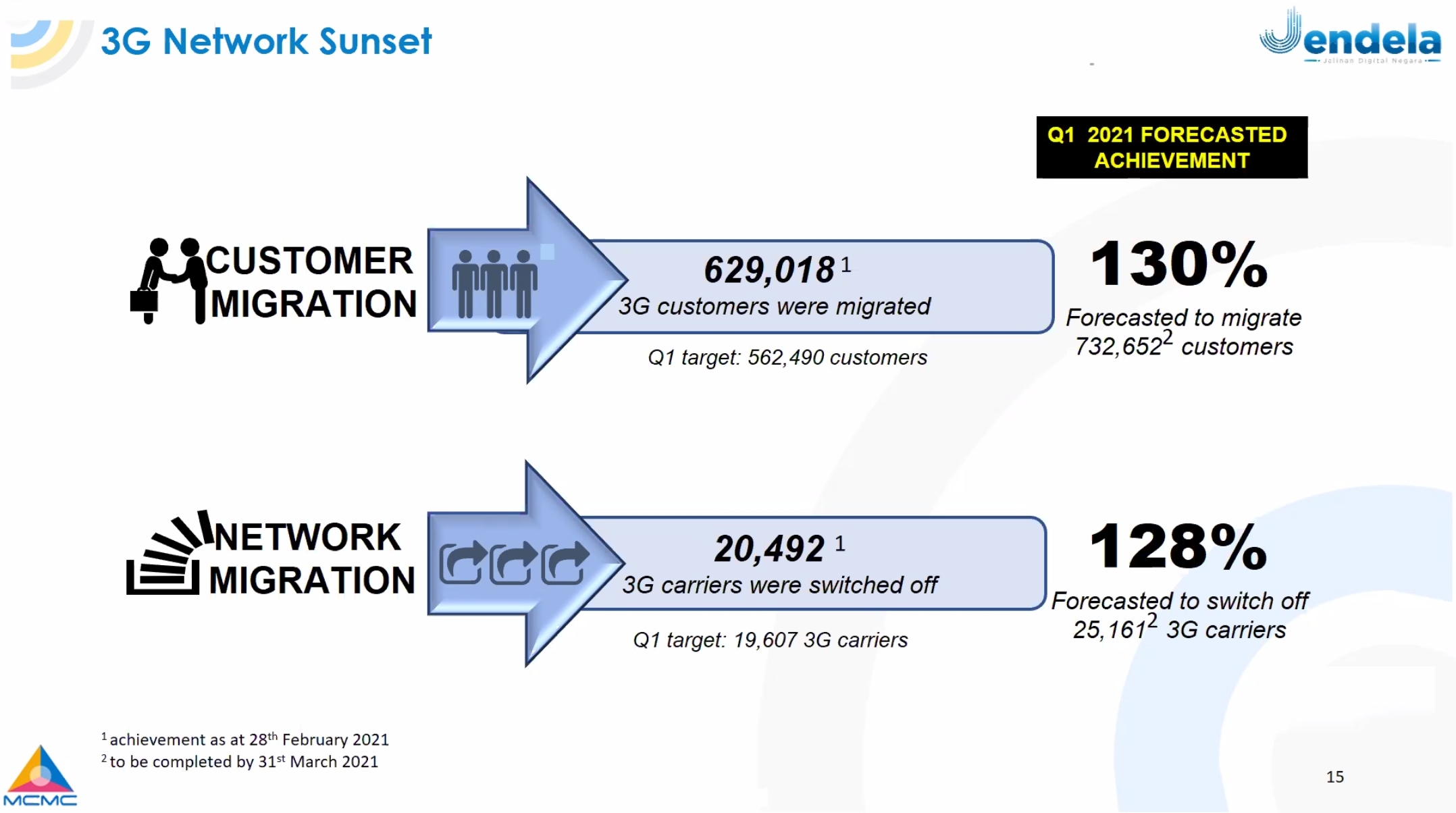
As announced last year, Malaysia aims to shutdown 3G networks by end of this year, to free up spectrum for 4G use. The MCMC said that a total of 629,018 customers have switched to 4G devices which is 130% of its original target and a total of 20,492 3G carries have been switched off.
The MCMC said that the 3G shutdown will be done gradually according areas. During the media briefing, Maxis CEO Gokhan Ogut shared that Voice Over LTE (VoLTE) adoption is happening faster than expected. If a customer doesn’t have an VoLTE device, they could still make calls via the 2G network.

